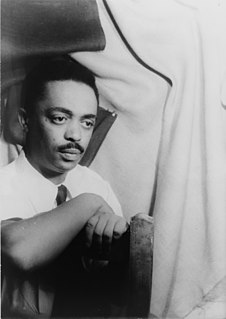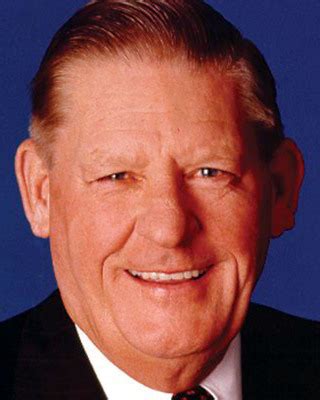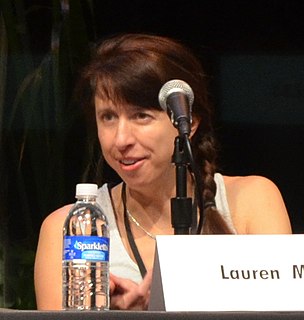A Quote by Judith Butler
I never did like the assertion of the "innate" inferiority or women or Blacks, and I understood that when people tried to talk that way, they were trying to "fix" a social reality into a natural necessity. And yet, sometimes we do need a language that refers to a basic, fundamental, enduring, and necessary dimension of who we are, and the sense of sexed embodiment can be precisely that.
Related Quotes
I know that some subjective experiences of sex are very firm and fundamental, even unchangeable. They can be so firm and unchanging that we call them "innate". But given that we report on such a sense of self within a social world, a world in which we are trying to use language to express what we feel, it is unclear what language does that most effectively. I understand that "innate" is a word that conveys the sense of something hired-wired and constitutive. I suppose I would be inclined to wonder whether other vocabularies might do the job equally well.
There is a narrow class of uses of language where you intend to communicate. Communication refers to an effort to get people to understand what one means. And that, certainly, is one use of language and a social use of it. But I don't think it is the only social use of language. Nor are social uses the only uses of language.
In its most fundamental sense, execution is a systematic way of exposing reality and acting on it. Most companies don't face reality very well. ... Realism is the heart of execution, but many organizations are full of people who are trying to avoid or shade reality. Why? It makes life uncomfortable.
If we hope to stem the mass destruction that inevitably attends our economic system (and to alter the sense of entitlement - the sense of contempt, the hatred - on which it is based), fundamental historical, social, economic, and technological forces need to be pondered, understood, and redirected. Behavior won't change much without a fundamental change in consciousness. The question becomes: How do we change consciousness?
Mr. J.S. Mill speaks, in his celebrated work, "Utilitarianism," of the social feelings as a "powerful natural sentiment," and as "the natural basis of sentiment for utilitarian morality," but on the previous page he says, "if, as is my own belief, the moral feelings are not innate, but acquired, they are not for that reason less natural." It is with hesitation that I venture to differ from so profound a thinker, but it can hardly be disputed that the social feelings are instinctive or innate in the lower animals; and why should they not be so in man?
The first election in which all South Africans took part was in April, 1994. There were long queues [lines] of employers and employees, black and white. In the sense of Africans, Coloreds and Indians - when I talk about blacks, I mean those three. Blacks and whites mingled to vote without any hitches. Many people would have expected a great deal of tension, clashes and violence, but it did not occur.
I think, as human beings, we all have a fundamental mode, a basic way of relating to the rest of reality, and for me, it's always instinctively been about sound making and trying to extract information, grammar, meaning from sound making. That's been my way of navigating reality that's very personal; a painter might say they make marks or look.
The basic problem is not political, it is apolitical and human. One of the most important things to do is to keep cutting deliberately through political lines and barriers and emphasizing the fact that these are largely fabrications and that there is another dimension, a genuine reality, totally opposed to the fictions of politics: the human dimension which politics pretend to arrogate entirely to themselves. This is the necessary first step along the long way toward the perhaps impossible task of purifying, humanizing and somehow illuminating politics themselves.
I think the most important work that is going on has to do with the search for very general and abstract features of what is sometimes called universal grammar: general properties of language that reflect a kind of biological necessity rather than logical necessity; that is, properties of language that are not logically necessary for such a system but which are essential invariant properties of human language and are known without learning. We know these properties but we don't learn them. We simply use our knowledge of these properties as the basis for learning.
Today, blacks are no longer the litmus paper or the barometer of social change. Blacks are in every segment of society and there are laws that help to protect them from racial discrimination. The new ‘niggers’ are gays. It is in this sense that gay people are the new barometer for social change. The question of social change should be framed with the most vulnerable group in mind: gay people.
[Marla, Shar and I] all have had very public breakups, so I think people know they can relate with us in one way or another. And this is one of the few reality shows where they didn't have the cameras right in people's faces. Like when we were sitting around the table talking with the divorced people, the cameras were way back. And we just listened. Sometimes people just need an ear.
The hope was, people like me got to finally find our place in college or in the actual world. People who understood this told you that high school wasn't the actual world, that it was more like a temporary alternate reality you were forced to believe in for four years. A video game you played, where you could never get to the next level no matter how hard you tried.
Our most fundamental social need, it turns out, to my amazement, is love. Now, I'm not a hippie-dippie whatever. If you look at the literature, our most fundamental need for children is an environment of maximum love, and that they can be hugged, kissed, and loved. That's what humanises us and allows us to realise our whole dimension.







































